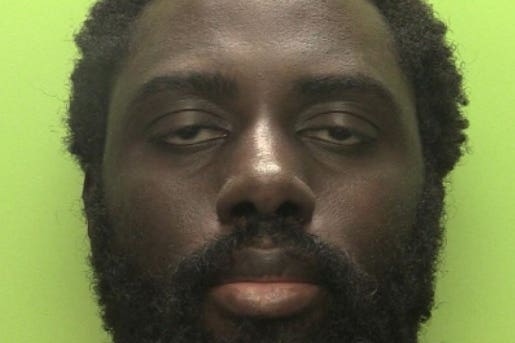Judge urged not to pass whole life order on Nottingham triple-killer
Peter Joyce KC said Valdo Calocane should not have been on the streets and was ‘gravely and seriously’ mentally ill.

The life of Valdo Calocane and the lives of his victims were all destroyed by the 32-year-old’s mental illness, which “stalked him down” more than three years before he stabbed three people, a court has heard.
Calocane, formerly of Forest Fields, Nottingham, is expected to be sentenced on Thursday at the city’s Crown Court for the manslaughter of students Barnaby Webber and Grace O’Malley-Kumar, both 19, and school caretaker Ian Coates, 65.
He has also admitted three counts of attempted murder relating to pedestrians he targeted in Nottingham city centre in the early hours of June 13 last year.
His case is essentially very simple: ‘I was ordered to do this by the voices in my head’, and any fair analysis of him says that that is right
Offering mitigation on behalf of Calocane on Wednesday, defence barrister Peter Joyce KC urged Mr Justice Turner not to consider a whole-life order.
Mr Joyce told the court: “There are very few whole-life orders and they have all, without exception, been for offences of murder.
“This man is not before you for murder, he is before you for manslaughter.”
The defence lawyer added: “Schizophrenia is a well-established, long-established mental disease that can strike anyone and will strike 1% of the population through no fault of their own.
“The clearest evidence in this case is available… it (the mental illness) started in late 2019 and he was diagnosed as a paranoid schizophrenic in May 2020.
“No fabrication, no exaggeration, no concoction – this unwanted visitor to his life hit him. That’s the fact.”
He should not have been on the streets of Nottingham but the fact he was is not his fault
Mr Joyce said schizophrenia had “stalked down” a man of previously impeccable character and behaviour.
He added: “It’s the fact that you have now before you a list of psychiatric episodes that he endured over years and years.”
Pointing out that the initial diagnosis of schizophrenia was made two years before the killings, Mr Joyce said: “Any pretence that he is not ill is wrong.”
The defence barrister went on to describe Calocane as “a man who prior to being smitten” by mental illness “was wholly law-abiding, was hard-working, put himself through university and was doing his very, very best to become a meaningful member of society.”
He added: “By the time June 2023 came around he had been wanted on warrant in this very city for nine months, for the assault of a police officer.
“And what was the police officer doing when he was arrested? He was trying to detain him under the Mental Health Act.
“What clearer demonstration could you have that this man was by then seriously mentally unwell?
“He should not have been on the streets of Nottingham but the fact he was is not his fault.”
Mr Joyce went on: “His case is essentially very simple: ‘I was ordered to do this by the voices in my head’, and any fair analysis of him says that that is right.”
“Of course he destroyed these lives. It (mental illness) destroyed their lives and his life is destroyed too.
“It is very unlikely that for very, very many years he will see other than the inside of a secure mental hospital.”
Submitting that a hospital order should be passed on Calocane, Mr Joyce told the court being confined in a hospital such as Ashworth, Broadmoor or Rampton was “no easy option for a man who, before this disease stalked him down” had been a man of impeccable character.
Bookmark popover
Removed from bookmarks